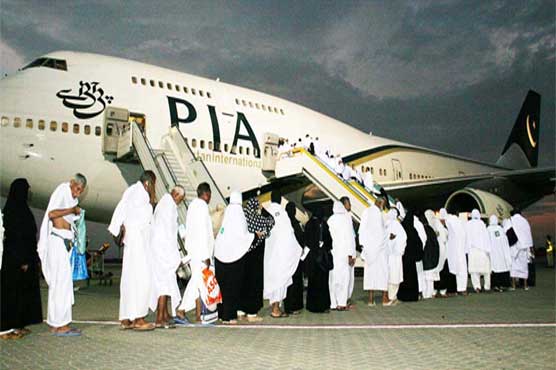While the mismanagement of the Saudi government on the occasion of Hajj has largely been criticized as it resulted in the loss of thousands of pilgrims’ lives due to stampede, the state is working to better organize the event with the help of developers. As of now, two Pakistanis have helped in developing a “virtual leash” app that locates lost people in rushy areas in Saudi’s first-ever hackathon in the Red Sea city of Jeddah last week.
The Suadi Arabia’s first hackathon ever was joined by around 3,000 programmers — who stayed at the venue — and hence broke the Guinness World Record for the largest number of participants at a hackathon. The developers’ teams also comprised of women participants from various developing countries like Pakistan, Yemen, Eritrea, East Asian countries and Saudi itself. All of these Muslim women were in their 20s and were covered head-to-toe in the Islamic hijab.
The participants of the two-day event were primarily focussed on to crowd-source answers to a key question that has long vexed hajj organizers — how to avert future deadly disasters. Two Pakistanis programmers co-developed an app with the help of two East Asian students that locates relatives lost in the sea of people during the pilgrimage and it can be simply connected via a Bluetooth wristband.
Must Read: Happy 72nd Independence Day, What this country has given us
Nouf al-Rakan, chief executive of the Saudi Federation for Cyber Security and Programming, which organized the event, told the AFP; “We aim to upgrade the experience of Hajj for all pilgrims from all over the world. This (hackathon) will enrich that experience, will give us plenty of solutions and ideas that we can actually adapt and invest in.”
There were other complex projects presented by developers at the Hackathon like the sensors for garbage bins that would alert cleaners when they are full to dispose of any hygiene scare, an app to help non-Arabic speakers translate instructions into multiple languages without an internet connection and an app for paramedics to speedily reach people in need of medical attention using geo-tracking technology.
Kristian Ulrichsen, a fellow at Rice University’s Baker Institute in the US, stated; “I imagine the Saudi authorities are very anxious to avoid a repeat of past mishaps that could reflect badly on the ‘modernising’ narrative around Crown Prince Mohammed bin Salman.”
It must be noted that we at this point are unaware that whether these apps are being tested during the Holy Hajj 2018. So stay connected, as we are keen to seek more information on the story.




